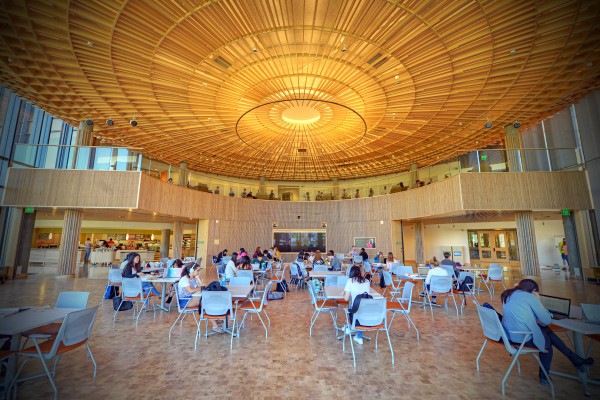WashU Expert: Senate criminal justice reform bill falls short of needed changes
A bipartisan groups of United States senators announced Oct. 1 legislation that would overhaul the country’s criminal justice system, giving judges more leeway in sentencing and reducing sentences for some nonviolent offenders. A move in the right direction, said Carrie Pettus-Davis, PhD, an expert on criminal justice system reform at the Brown School, but the bill doesn’t go far enough.
WashU Expert: Pope Francis visit spotlights needed criminal justice system reform
Pope Francis is widely expected to address a range of issues when he visits the United States Sept. 22-27, including the crisis of mass incarceration in the US criminal justice system. The attention is needed and welcome, said a criminal justice reform expert Carrie Pettus-Davis, PhD, assistant professor at the Brown School.
Brown School’s Hillman Hall a ‘healthy’ building
Exercise. Eat right. Make time to relax. Most of us know what it takes to keep our bodies healthy. But what makes a building healthy? Amy Eyler, PhD, assistant professor at the Brown School at Washington University in St. Louis, wants to find out. Using the Brown School’s new Hillman Hall as a laboratory, Eyler […]
WashU Expert: Census Bureau report shows effectiveness of Affordable Care Act
The number of uninsured people in America dropped by 8.8 million in 2014, according to a report released Sept. 16 from the U.S. Census Bureau. This number is significant because it is the first Census Bureau report since the widespread implementation of the Affordable Care Act, said a health economist at Washington University in St. Louis. “This is a big deal,” said Timothy McBride, PhD, professor at the Brown School and noted health policy analyst.
National conference to focus on smart decarceration of American criminal justice system
A national conference held at Washington University in St. Louis Sept. 24-27 will begin a conversation on finding a lasting solution to America’s incarceration problem. Organized by Carrie Pettus-Davis, PhD, assistant professor at the Brown School, the conference will discuss and evaluate proposals for sustainable and effective decarceration of America’s jails and prisons.
On the road to global health
Washington University researchers and international partners go to great lengths to help solve some of the world’s most pervasive health challenges.
Brown’s 40-year partnership helps children of abuse
For more than 40 years, the Brown School and the Family Resource Center have been working together to give abused children hope and a better life.
FRC by the numbers
A look at the impact the 40-plus-year partnership between the Brown School and the Family Resource Center has had on the community.
Healthy living for the long run
Courtney Berg, MSW ’05, explains how she became executive director of Girls on the Run, and what it means to her to have an impact on so many girls.
Brown School dean search committee formed
Provost Holden Thorp, PhD, has appointed an
eight-member committee to identify candidates for the position of dean
of the Brown School. Eddie Lawlor, PhD, the William E. Gordon
Distinguished Professor, announced he will step down as
dean at the end of the academic year, June 30, 2016.
View More Stories





